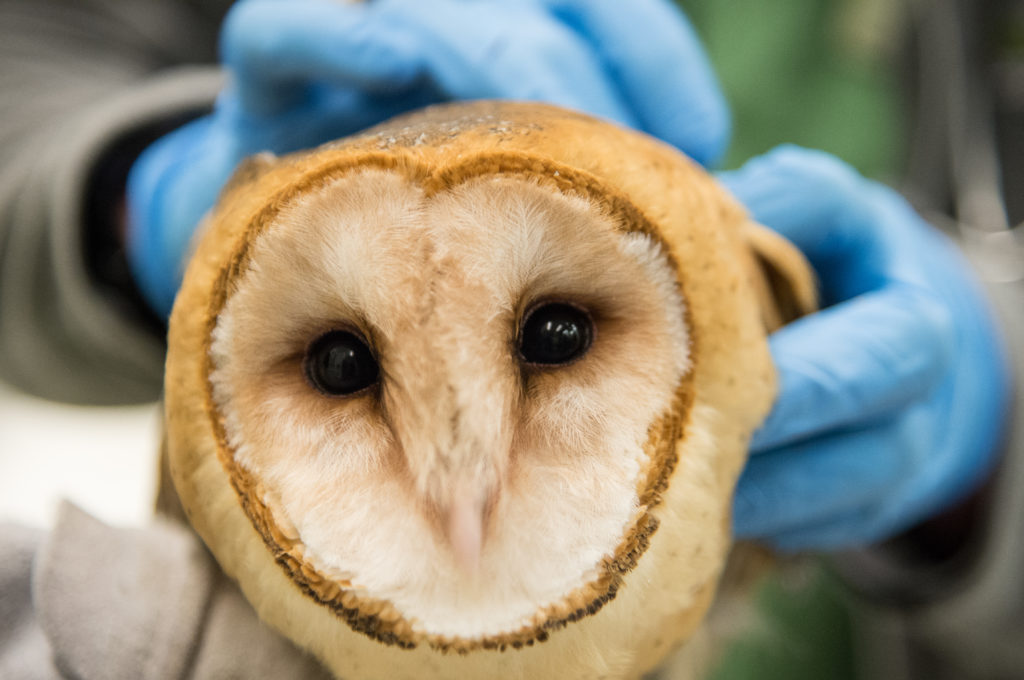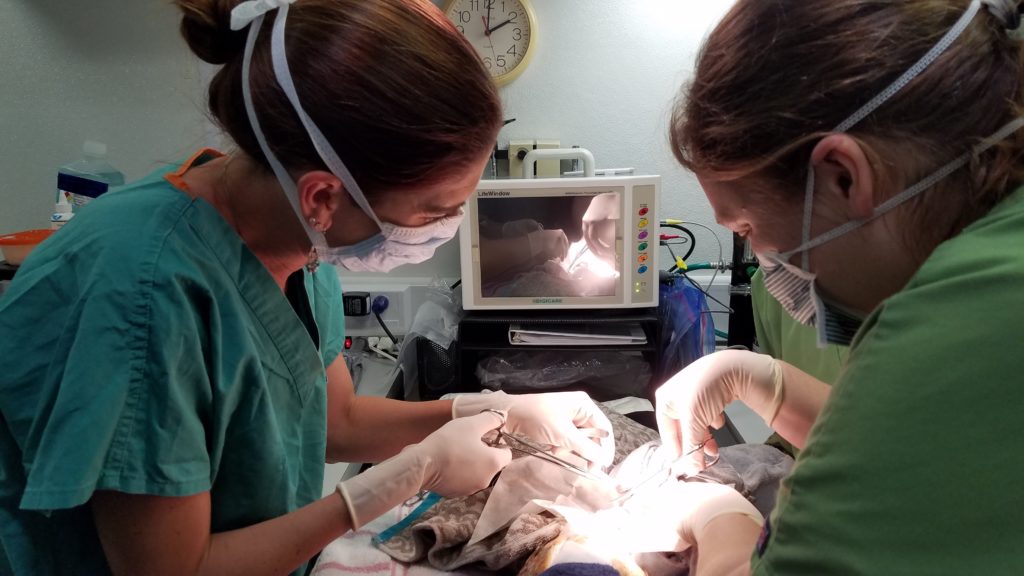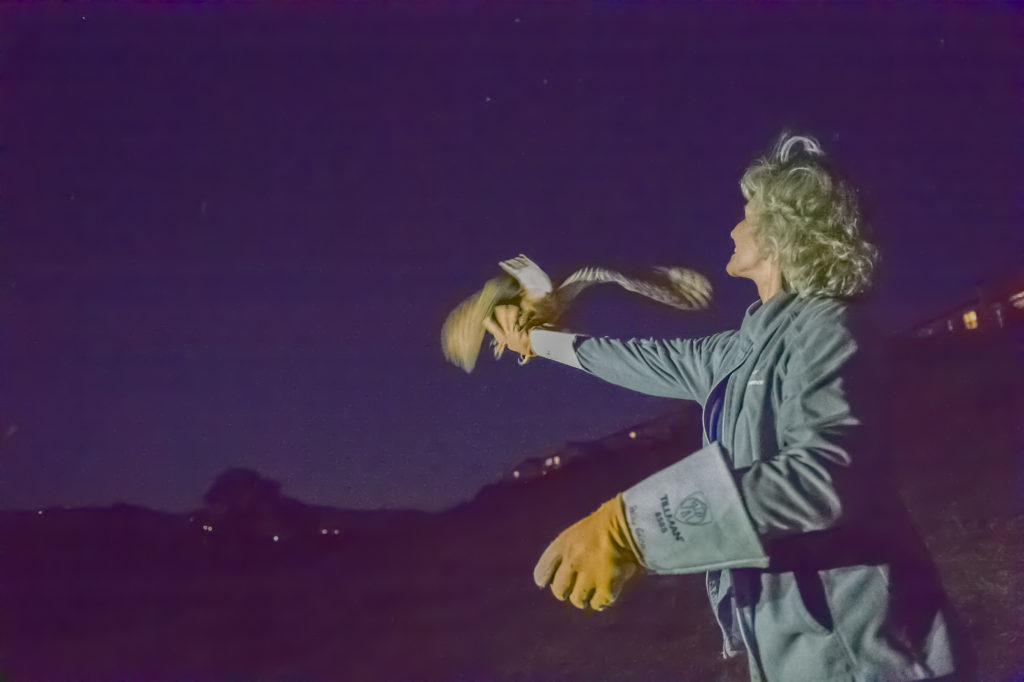UC Davis and Lindsay Wildlife partner for groundbreaking rehabilitation treatment that uses fish skin to heal animals!
SF Premiere Pioneering Wildlife Rehabilitation Center first to treat raptor wounds with novel medical technique
 WALNUT CREEK, Calif., November 14, 2018—In what may be a breakthrough in the world of wildlife rehabilitation, a University of California, Davis veterinarian has been treating the wounds of raptors with fish skin at Lindsay Wildlife Rehabilitation Hospital in Walnut Creek, Calif.
WALNUT CREEK, Calif., November 14, 2018—In what may be a breakthrough in the world of wildlife rehabilitation, a University of California, Davis veterinarian has been treating the wounds of raptors with fish skin at Lindsay Wildlife Rehabilitation Hospital in Walnut Creek, Calif.
Dr. Jamie Peyton, chief of the Integrative Medicine Service at the UC Davis Veterinary Medical Teaching Hospital, in partnership with Lindsay Wildlife Veterinarian Dr. Allison Daugherty, brought an innovative technique to Lindsay of applying tilapia fish skin on the open wounds of injured animals as a biological Band-Aid. It’s been a remarkable success for the few raptor patients treated with the fish skin at Lindsay. Patients’ wounds are healing faster, it’s less traumatic for the animal and gets them back into the wild more quickly, said both doctors.
“The work that we’re doing here in conjunction with Lindsay, I really feel is going to change the way we treat these birds” said Peyton. “It’s important to try novel procedures to advance veterinary medicine. This could really benefit not only the animals here at Lindsay, but animals at other wildlife rehab centers.”
 Wound care is always a daunting task in wildlife rehabilitation, said Lindsay Wildlife’s Daugherty. Keeping a wound clean and sterilized on a wild animal is difficult and stressful for the vet staff, and, of course, the patient. Animals also will often try and tear at the bandages, she said.
Wound care is always a daunting task in wildlife rehabilitation, said Lindsay Wildlife’s Daugherty. Keeping a wound clean and sterilized on a wild animal is difficult and stressful for the vet staff, and, of course, the patient. Animals also will often try and tear at the bandages, she said.
But the tilapia skin contains high levels of collagen, which promotes skin growth and accelerates the healing process. The tilapia skin stays in place as the wound heals, so fewer bandage changes are necessary.
“With the tilapia, open wounds heal much faster than they would on their own,” said Daugherty.“This could mean that a bird gets back in the wild in a matter of weeks rather than months.”
A barn owl admitted to Lindsay’s Wildlife Rehabilitation Hospital last summer with twine and plastic embedded around his left ankle required surgery to remove the debris. Then Peyton applied the tilapia skin. Because the fish skin dermal substitute

was firmly in place and he could move about freely, the barn owl didn’t have to be confined during rehabilitation and could be in an aviary. After a few weeks in care, the barn owl’s wound was healed. And, on Oct. 6, he was returned to the wild!
This is not the first time fish skin has been used to help wildlife. Peyton drew national attention for her pioneering work helping wildlife affected by burns in fire-ravaged areas in California. This is the first time the tilapia bandages have been used on birds.
“In the long term, my hope is that one day we may return patients back to the wild with tilapia skin in place over their wounds, where these wild animals finish healing in their natural habitats, exactly where they belong,” said Daugherty.
###
About Lindsay Wildlife Experience:
Lindsay connects people with wildlife to inspire responsibility and respect for the world we share. It is a unique natural history and environmental education center where wild live animals are just inches away from visitors. It serves more than 100,000 children and adults and treats more than 5,600 animals each year at the first wildlife rehabilitation hospital established in the U.S.
Visiting Lindsay Wildlife Experience
1931 First Ave, Walnut Creek, CA 94597
(925) 935-1978
Media Contact at Lindsay Wildlife:
Elisabeth Nardi
(925) 627-2961
Media Contact at UC Davis:
Amy Quinton
UC Davis News and Media Relations
Office (530) 752-9843
Cell (530) 601-8077
